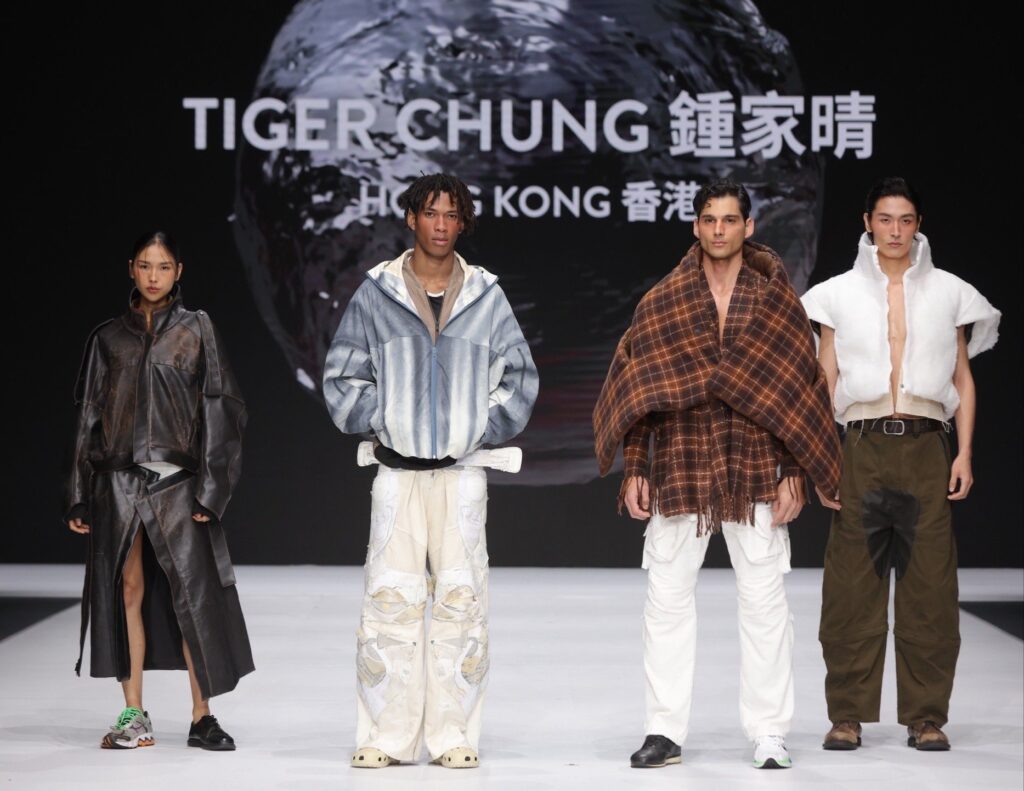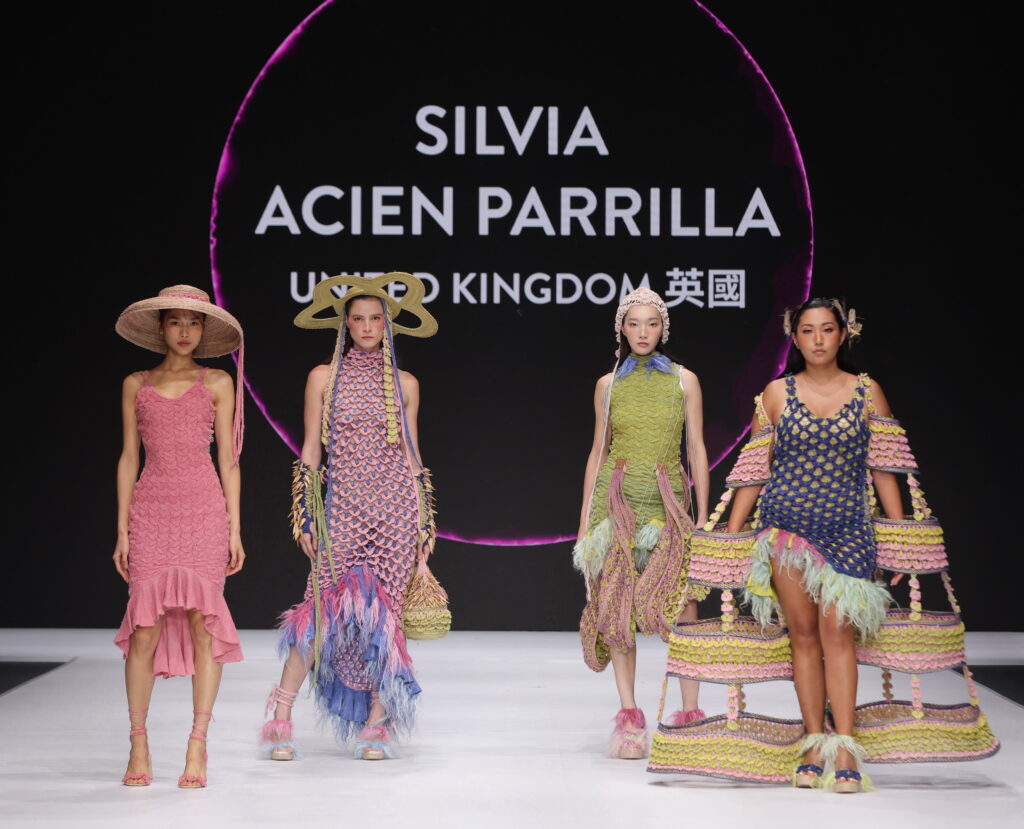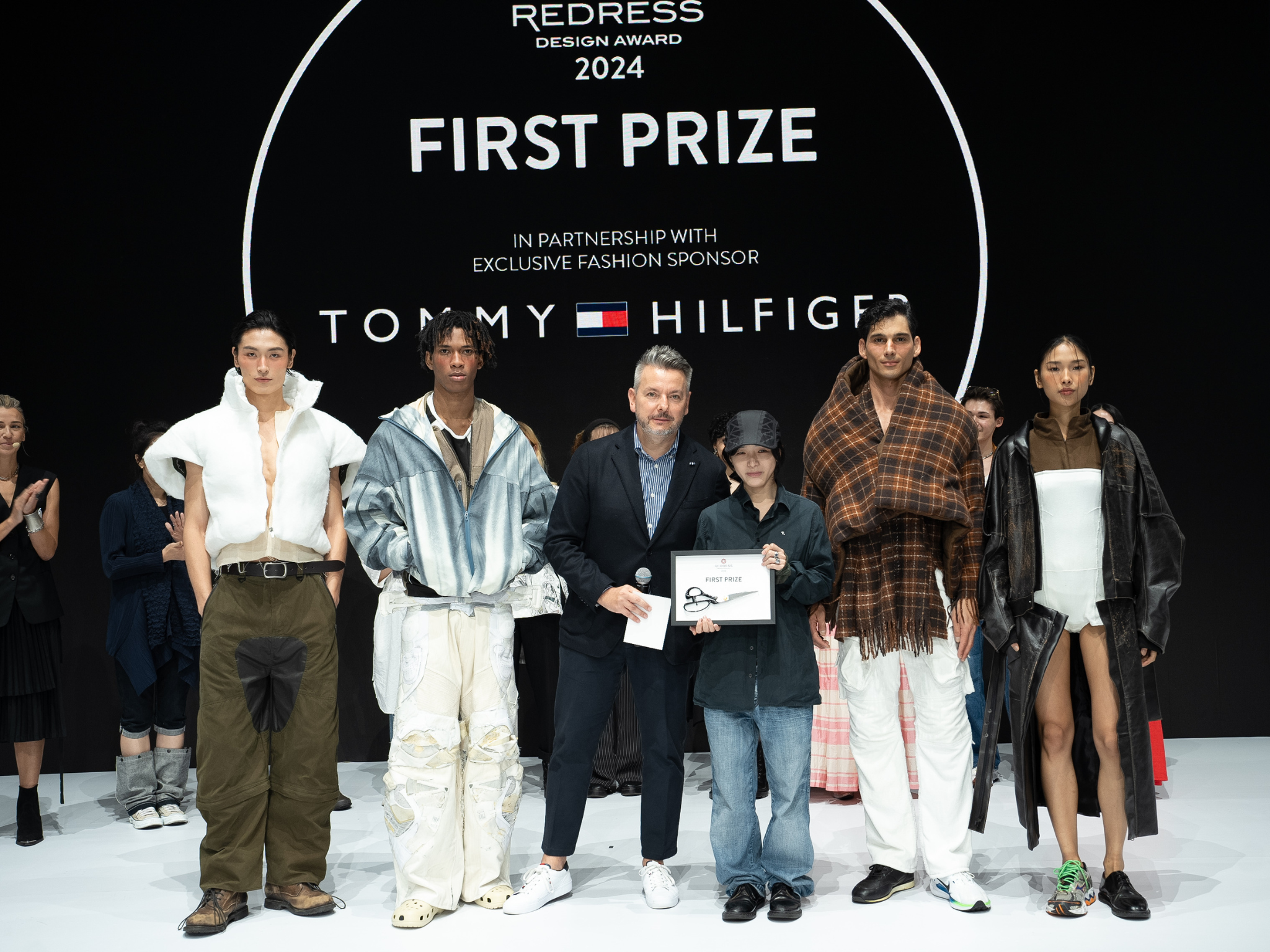5 Mins Read
Hong Kong-based charity Redress has announced the results of the 2024 Redress Design Award, with the top prize winner getting a chance to work with Tommy Hilfiger.
Redress, the Asia-focused charity tackling the fashion industry’s environmental impact, has named Hong Kong designer Tiger Chung as the winner of the 2024 Redress Design Award’s top prize.
Described as the world’s leading sustainable fashion design competition, the Redress Design Award aims to empower designers about circular fashion to reduce the industry’s climate impact and waste crisis. The 14th edition was held at the ongoing Centrestage Hong Kong trade show last week.
As the winner of the top prize, Chung will now get to work with Tommy Hilfiger on a sustainable design project for retail, and spend time under the wing of the fashion giant’s sustainability team to deepen his skills and understanding of eco-friendly production and marketing. They will further receive mentorship sessions from Tommy Hilfiger, which sponsored the top prize this year.
Chung, whose collection The Wanderer exploited waste streams like car seat covers and discarded sofas, called it a “huge opportunity to showcase circular solutions on a global stage”.
“Fashion is rightly criticised for its negative environmental impact, which is a huge concern for designers like myself,” they said. “But we intend to change this – and make fashion better for the planet.”
Tommy Hilfiger champions circularity at Redress Design Award

The fashion industry is responsible for a tenth of global emissions – five times higher than the aviation sector. It is also set to take up a quarter of the world’s carbon budget by 2050. This makes it one of the most polluting industries, thanks in large part to the waste crisis it’s currently undergoing.
The equivalent of one rubbish truck of textiles is landfilled or burned every second. And this is showing no signs of stopping: between 2015 and 2030, textile waste has been estimated to rise by 60%. On a wider note, more than 80% of a product’s climate footprint comes during the design stage.
This is why Redress is pushing designers to champion the circular economy, which involves regenerating nature, reusing and upcycling materials, and taking into account a product’s full life cycle.
The 10 finalists of the 2024 Redress Design Award – which partners with 170+ academic institutions – were from all over the world, selected from applications across 55 global regions. Creations on its runway were made using circular design techniques and textile waste – from denim end-of-rolls to a shredded military parachute.
They participated in a host of circular educational challenges. In Vietnam, a low-waste design challenge at Tal Apparel’s factory explored commercial solutions for pre-consumer garment waste. Similarly, a Packaging with Purpose challenge in partnership with Delta Global looked at how eco packaging can connect more consumers to a brand’s value.
“Circular design is foundational to a sustainable future for fashion,” said Jessica Wei, senior sustainability director at Tommy Hilfiger Asia-Pacific, and a judge of the 2024 awards. By 2030, all of the fashion label’s products will contribute to the circular economy through design, use and end of life. That’s also why Tommy Hilfiger partnered with Redress to help educate designers about circular fashion design.
Apart from its support, Chung will also benefit from an HK$50,000 ($6,400) development fund, a lockstitch machine and overlock sewing machine from Japanese company Juki, and a one-year subscription to Bloomsbury Fashion Central. They also won the Hong Kong Best Prize, which recognised the highest-scoring designer from the city, which carried an HK15,000 ($1,900) prize money.
Finalists join Redress’s trailblazing alumni network

Tian Ruyin, a designer from China, was the runner-up, earning a mentorship with sustainable fashion designer Orsola de Castro, an HK15,000 ($1,900) grant, and a lockstitch machine. And British designer Silvia Acien Parrilla won the People’s Choice award, receiving a Juki sewing machine after impressing global voters with her designs.
All the finalists join the Redress Alumni Network, a community of over 300 previous finalists and semi-finalists from more than 50 regions (over half of them are based in Asia). These designers have made strides globally, dressing celebrities like Taylor Swift and Heidi Klum, appearing at the Olympics, and visiting the Pacific to tackle microplastic pollution with Uniqlo.
“This competition win is a broader victory for the industry, which needs urgent injections of creativity from designers, and more engagement from consumers if we’re to tackle the growing waste crisis raging globally and particularly in Asia,” said Redress founder Christina Dean. “Urgent change and collaboration at the design stage is needed.”
Dean founded Redress in 2007 to inspire positive environmental change and promote sustainability in fashion by reducing textile waste, pollution, and water and energy consumption. A decade later, she established an offshoot fashion brand called The R Collective, which rescues textile waste from luxury brands, mills and manufacturers and upcycles these materials into elegant clothing pieces.

Redress will again collaborate with Tommy Hilfiger to present a celebratory runway of the awards’ emerging Chinese designers at Shanghai Fashion Week (October 10-18).
Speaking to Green Queen in February, Dean recalled her biggest learnings since starting Redress 17 years ago. “I’ve come to respect the fashion industry, its suppliers, its spinners, weavers, farmers, etc., very deeply, and I see such wonderful and enormous talent, generosity, determination, and humanity and love throughout the business,” she said.
“I’ve met the most incredible activists working in the fastest and cheapest of the big fast-fashion brands; I’ve met recyclers with bigger brains than their machines; and I’ve met CEOs with more conviction for change than prolific activists,” Dean added.
“So I’ve come to realise that the humans behind the machines, spreadsheets, steering wheels, and boardrooms of fashion are pretty amazing people, who bring optimism to the challenges at hand. We are all only human, against some inhumanly complex issues.”



